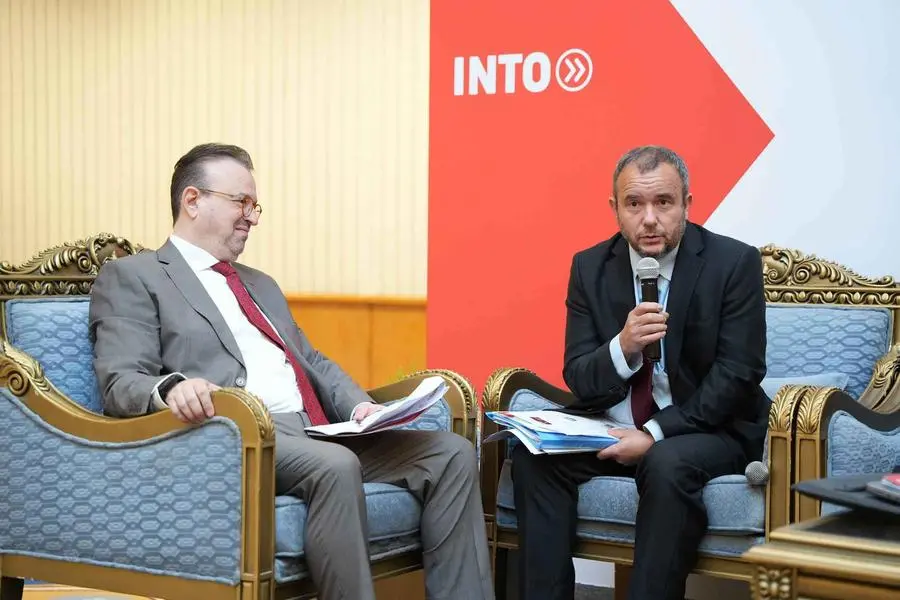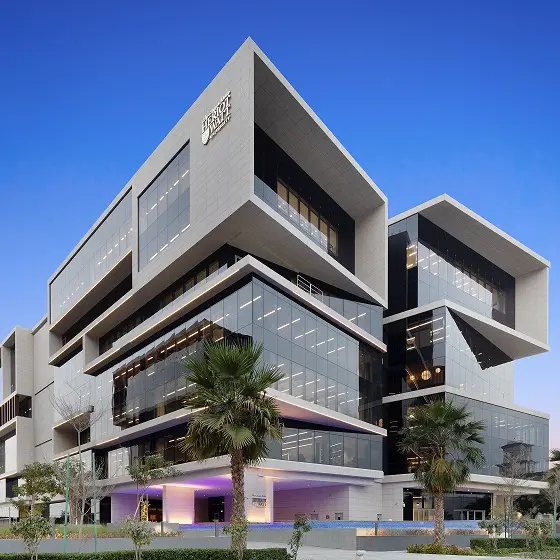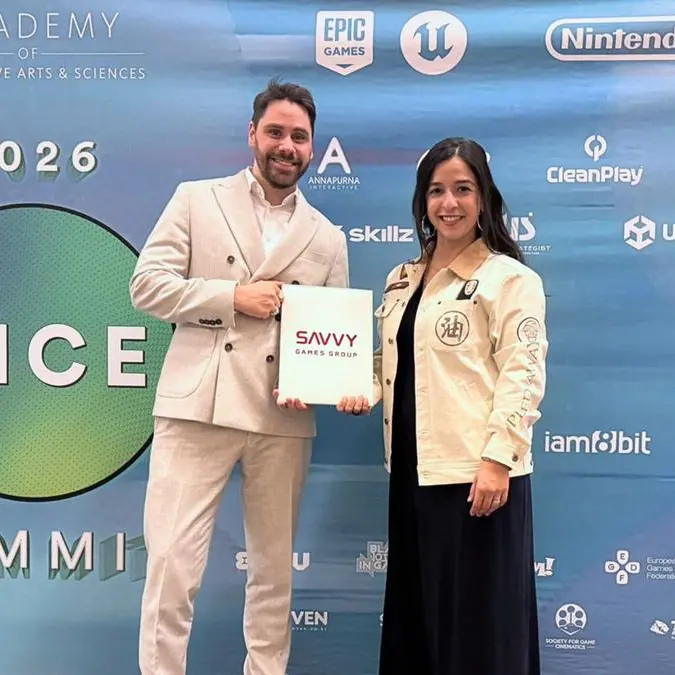PHOTO
INTO University Partnerships, a global education partnering organisation, recently organised a Thought Leadership Event, ‘Higher Education Support for Vision 2030, at the InterContinental Riyadh Hotel. The event brought together key stakeholders and decision-makers from the international higher education sector to discuss Saudi Arabia’s transformative Vision 2030. It further aimed to promote collaborative opportunities between various stakeholders and showcased contributions of the higher education sectors of Saudi Arabia and the UK in achieving exceptional outcomes.
The event focused on fostering collaboration between the higher education systems of Saudi Arabia and the UK, highlighting the crucial contributions both nations can make towards achieving Vision 2030 goals. Participants engaged in discussions on expanding research capacity, promoting intellectual diversity, and adapting vocational education to meet the demands of a rapidly evolving global economy.
Key speakers included INTO University Partnerships’ Co-Founder and Chief Executive Officer, John Sykes, Newcastle University’s Pro Vice Chancellor, Global and Sustainability, Richard Davies, Member of the Advisory Board at King Khaled University and Board of Trustees at Alyamamah University, Abraham AlThonayan, Ministry Advisor at Ministry of Energy, Industry and Minerals resources, Bandar bin Mohammed Al-Safir, and Business Development Manager at IDP IELTS Education Ltd, Kassab Bashi. The event was moderated by INTO’s Executive Vice President, UK Education, Mary Wade.
The event attracted attendees from the local media, representatives from Saudi ministries, schools, universities, sponsors, and other experts in higher education. It paved the way for continued cooperation between Saudi Arabia and the UK in the higher education sector.
During the panel discussion, Mr Sykes emphasised INTO University Partnerships’ belief that working together on projects is mutually beneficial, as both parties can learn from each other, with the shared goal to help individuals secure their dream jobs and foster personal development. The Thought Leadership Event was designed to explore how the higher education sectors of Saudi Arabia and the UK can contribute to achieving the objectives of Vision 2030. Mr Sykes stated that by facilitating discussions among stakeholders, the event aimed to highlight the achievements and future objectives of higher education while identifying opportunities for enhanced collaboration. Saudi Arabia has been strengthening its educational sector through partnerships with international institutions, allowing students to earn global degrees from home via Transnational Education (TNE). The nation is working to attract international students through its 'Study in Saudi Arabia' initiative, which includes TNE collaborations with UK universities. In line with Saudi Vision 2030, Saudi Arabia aims to position three of its universities among the top 200 globally, with a focus on education that supports Sustainable Development Goals (SDGs).
Professor Richard Davies Pro Vice Chancellor, Global and Sustainability, at Newcastle University, stated that he has worked closely with the INTO Centre in Newcastle, emphasising the need to be dynamic and productive in shaping the future. Key projects between Saudi Arabia and UK universities include collaborations in clean energy, hospitality in the Red Sea, marine shipping, and sports. He further added that Newcastle University is also focusing on agriculture, which is a critical area as the world seeks to address global food security. He highlighted his role in leading numerous collaborations on both local and global projects, fostering trust and understanding among individuals. He underscored the need for mutual learning from these partnerships, recognising the value of different projects and solutions. At Newcastle University, there are 34 societies, including Arabic, Saudi, and Islamic groups, reflecting a broad cultural engagement. In Saudi Arabia, universities are focused on developing solutions for cities like Makkah, with a strong foundation for students. Collaborating with Saudi universities is crucial for making a global impact, and one of the major ongoing projects in the country focuses on female sports and a football club. While it’s difficult to predict the next 10-20 years, the University is committed to offering platforms for students, vocational internships, and online teaching services. He stressed the importance of providing value to students, as education is a significant investment.
Adding to the discussion, Bandar bin Mohammed Al-Safir, Ministry Advisor at Ministry of Energy, said that there are several exchange programs and recognised the need to invest in AI to stay competitive. The pace of career movement is accelerating, and the country is actively striving to reach new heights. However, change takes time, and bridging the gap requires people with the right mindsets — those who are highly skilled and business-oriented. Various ministries, including Health and Sports, are working collectively to achieve Vision 2030. An increase in human resources and development funds is strengthening Saudi Arabia’s capital power. He further highlighted how His Royal Highness is dedicated to the country’s development. To achieve Vision 2030, investing in human resources is crucial, as education is seen as the key to development. He reiterated the efforts in supporting the government in realising this vision, with a particular emphasis on health, technology, and engineering. Academic excellence is driving the progress towards Vision 2030, and the country offers numerous opportunities in the tourism sector.
During the panel discussion, Abraham AlThonayan, a Member of the Advisory Board at King Khaled University and the Board of Trustees at Alyamamah University, shed light on his role as an advisor to several Saudi universities. He shared his journey of the past 20 years providing educational consultancy in the UK. Being at the heart of the collaboration between the UK and Saudi Arabia, AlThonayan witnessed the fast-paced strengthening of ties between the two nations, particularly in the last two decades. A major challenge for Saudi universities is closing the skills gap by producing highly skilled employees. The universities collaborate closely with various initiatives, such as AL-Ula and government ministries, to contribute to the development of society and community. He stated that further collaboration is required on curriculum development and research funding. To achieve global rankings, Saudi universities must demonstrate significant development and earn recognition from local ministries. This year alone, at least five Saudi universities entered the world rankings for the first time, and six universities are now involved at 40 per cent in these rankings. Collaboration between Saudi and UK universities began early, extending beyond students to broader academic initiatives.
Furthermore, Sami Kassab Bashi, Business Development Manager, IDP IELTS Education Ltd, emphasised the unwavering support for Saudi students and local universities, recognising the importance of partnerships between Saudi universities and the broader education system to maintain high-quality education. With mega projects underway in Saudi Arabia, there is a growing need for skilled individuals to manage these initiatives. The private sector is booming, particularly in real estate and hospitality, which aligns with Saudi Arabia’s Vision 2030. Access to institutions like Newcastle University and other UK universities plays a key role in facilitating this progress. There is a high demand for a better quality of life, skilled programs, and advanced education to meet the needs of the growing population. Students today are more forward-thinking, with student councils leading the charge in exploring what comes next. They are also educated to a higher level and more informed than previous generations. Interestingly, AI has become a choice for 50 per cent of students, especially in the UK, as they explore emerging technologies and future opportunities.
Since 2006, INTO University Partnerships has been connecting international students with top universities in the US, UK, and Australia. With a reputation for helping over 150,000 students from 188 countries achieve their educational goals, INTO operates globally with a team of 1,500 staff and 2,500 recruitment partners.
For further information, please contact:
Orient Planet Group (OPG)
Tel: +971 4 4562888
Email: media@orientplanet.com
Website: www.orientplanet.com




















